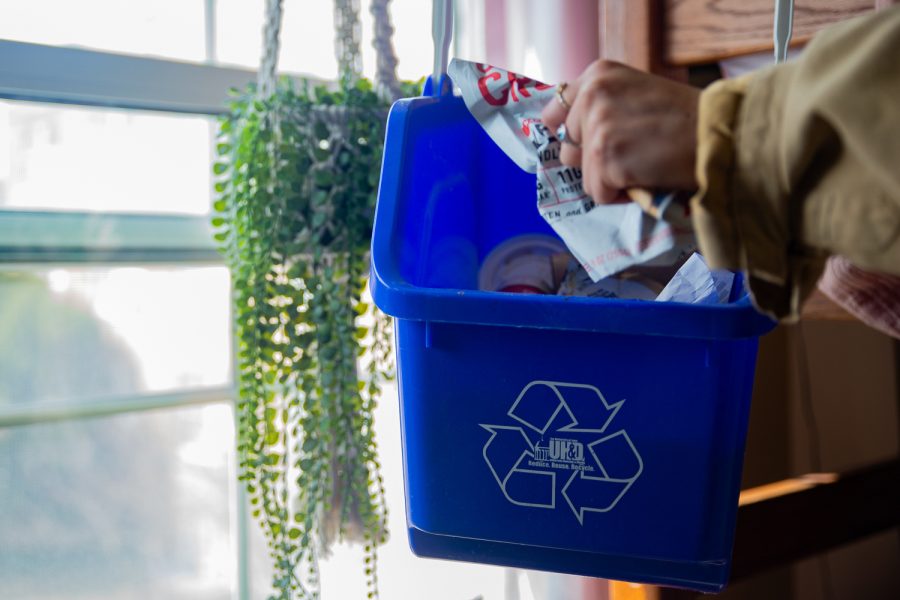Opinion | Knowledge on sustainability is what creates impactful citizens
The University of Iowa Undergraduate Student Government backing the implementation of a sustainability gen-ed requirement is an important step in developing future-oriented students.
Photo illustration.
April 12, 2022
Globally, an estimated 97 million more people are living on less than $1.90 a day because of COVID-19, and climate change continues to cause extreme record-breaking weather events in different parts of the world. It is no secret that we live in a world riddled with issues that negatively influence different aspects of society.
However, the University of Iowa Undergraduate Student Government backing the implementation of a sustainability gen-ed requirement gives me hope that the students of today will become the much needed change makers of tomorrow. A sustainability course would be beneficial as it will imbue in students the capacities necessary to engage with real-world problems.
Contrary to regular discussion-based classes, sustainability classes assume a project-based approach that directly involves students in the solution formulation process, teaching them skills and values that transcend the four corners of a classroom. This is relevant because news outlets in Iowa have been reporting concerning issues recently regarding social and environmental affairs.
For instance, it was reported that expanded Supplemental Nutrition Assistance Program (SNAP) benefits have ended, greatly reducing the amount of food that can be distributed to families in need. Though the program will still be supplying provisions, the reduced budget will make shortages more prevalent for the 141,000 households in Iowa that rely on SNAP.
In addition, scientists have reported that environmental circumstances are worsening as the methane present in the atmosphere increased by a record amount. As it is a powerful greenhouse gas, its continued abundance will lead to rapid global heating, and thus, more severe climate change.
Even based on just these two issues alone, it is clear that we need citizens who are motivated and capable of conceptualizing sustainable projects that seek to improve society’s current circumstance; it is our educational institution’s job to create those citizens. How? Through sustainability courses.
First, a study on the effectiveness of environmental literacy classes showed that taking even one course before graduation increased a student’s awareness of environmental problems and their willingness to participate in addressing them.
Additionally, the results of a study providing 88 university students with pre-tests and post-tests regarding environmentally responsible behavior concluded that students who have taken an environmental literacy course exhibit significantly more environmentally responsible capacities in comparison to students who did not, indicating the necessity of sustainability gen-eds in educational institutions.
In essence, sustainability education encourages social action to make a positive difference.
Second, as program-based courses, there are personal benefits in the form of skill development. Sustainability education improves one’s ability to communicate and lead, providing students with the capacity to work collaboratively with others toward a common goal, such as ending hunger in a small area or improving literacy in a neighborhood.
Lastly, late adolescence is an important stage in identity and judgment development. Hence, colleges communicating the relevance of sustainability with their students and establishing the mindset of having to develop sustainable solutions to issues will play a pivotal role in their level of social responsibility in the future.
For these reasons, USG is correct in backing the implementation of a sustainability gen-ed requirement. There are just some things you cannot teach through discussions in a classroom.
Four years ago, I, along with other people, had to design a sustainable solution to improper waste management and unemployment in a certain community as a requirement for seniors in high school. The experience of interacting with locals and determining the best way to help them through collaborative research made me feel like I was making a difference.
Every student should get to experience solving real-world problems.
Columns reflect the opinions of the authors and are not necessarily those of the Editorial Board, The Daily Iowan, or other organizations in which the author may be involved.



